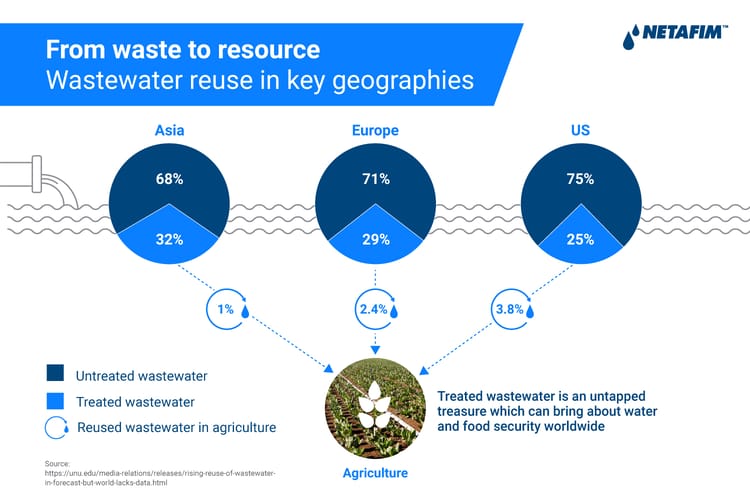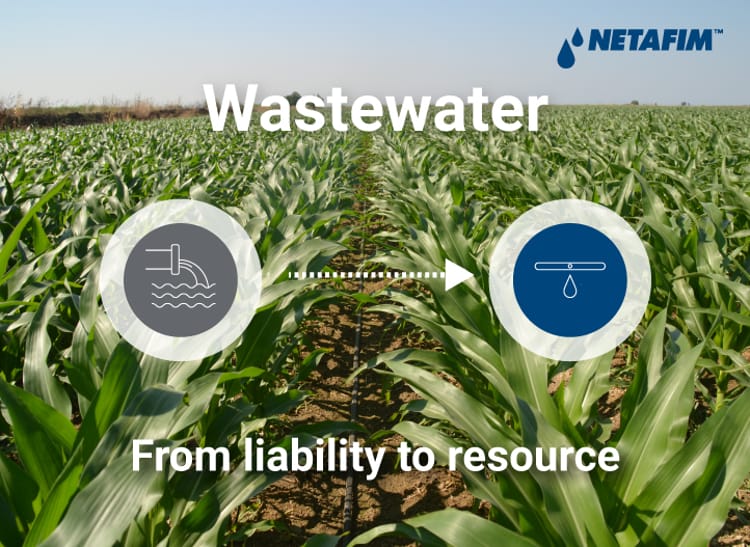We need to stop looking at wastewater as waste
When you think about wastewater what comes to mind (and nose)? Likely, a long list of bad-smelling, murky colored substances: human waste, sewage, food scraps, oils, soaps, and chemical pollutants. No one argues that wastewater is messy, an environmental hazard, and a headache for the industry, it also provides an opportunity as a valuable contributor to sustainable agriculture and a global food secure future. Given that half of the world's population will suffer severe water stress by 2030, the time has come to stop looking at wastewater as a liability and start maximizing its potential as a resource.
Wastewater - a treasure in disguise
Huge volumes of wastewater are generated daily in households, industry, and agriculture worldwide. The total volume of global wastewater discharge was recently estimated at 400 billion m3/year.
Wastewater usually consists of 99% water and 1% suspended, colloidal, and dissolved solids such as nutrients, pathogens, heavy metals, human feces, oils, runoff, and toxic chemicals. While not usable until treated, wastewater offers tremendous benefits to salvage essential nutrients for reuse. More and more, farmers are realizing the potential of treated wastewater for its high nutrient content and ability to supplement water resources. If applied safely, wastewater is a valuable source of both water and nutrients, which can significantly contribute to water and food security worldwide.

Why can’t we dump wastewater on our fields?
Reusing untreated wastewater is a bad idea (and an illegal one it some parts of the world). If wastewater is not treated properly before being applied through irrigation, it can cause serious problems for the soil, crops, groundwater, and also the health of farmers and consumers.
In order to safely use wastewater, industrial discharges and municipal effluents need to be treated. Removal of contaminants from wastewater or sewage can convert it into a solution that can be returned to the water cycle. There are multiple advantages of using treated wastewater including increasing the availability of water throughout the year, the promotion of development of additional water sources for industry, municipalities, and irrigation for agriculture and food production.




Comments
We'd love to hear your thoughts! To enter a comment, type your name and email address.